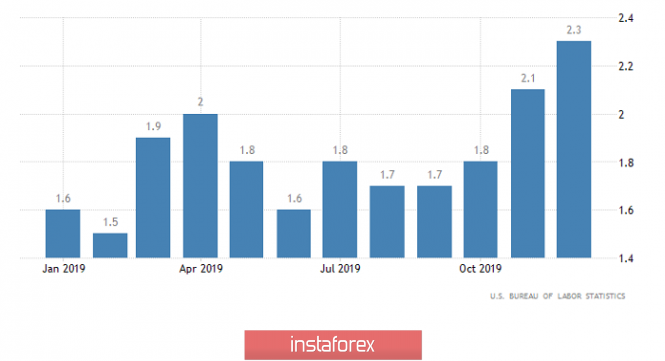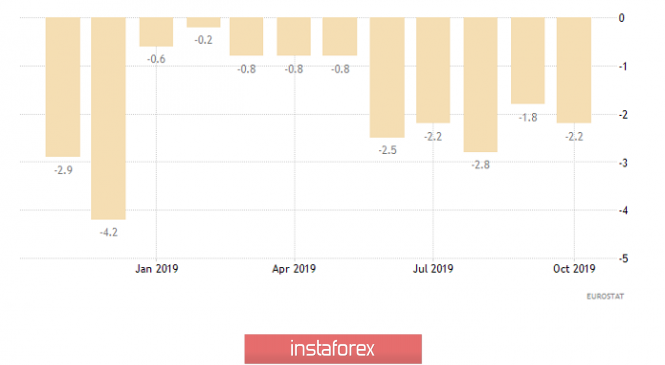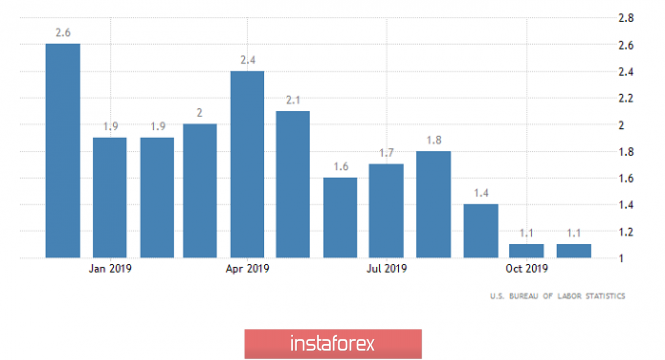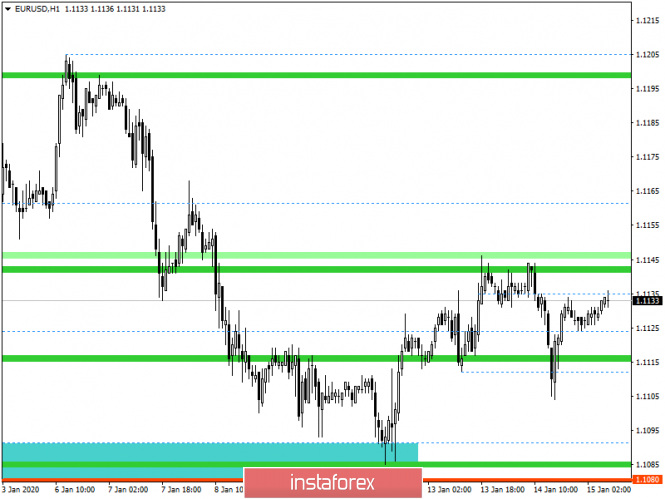Despite the extremely insignificant scale of fluctuations, the movement of the single European currency is quite interesting. The dollar has been steadily growing since the morning, long before inflation data was published. But the single European currency began its return to the values with which yesterday began. This is interesting, since such behavior is simple contrary to macroeconomic statistics. Many attribute this to rumors that China and the United States may sign the first phase of a full-scale trade agreement today. Little is known about the agreement itself. White House officials only admit that, according to the plan, all tariffs and duties will remain unchanged until the second phase of the agreement is signed. But everyone already knew about this for a long time. Nothing more is known. The lack of understanding of what Washington and Beijing will sign today is scary and alarming. Rumors are already circulating that this agreement will do huge harm to other countries. So there is complete uncertainty, which scares investors much more than the understanding that the situation will worsen.

However, inflation in the United States came out exactly as planned. It accelerated from 2.1% to 2.3%, which finally removes all doubts about the further actions of the Federal Reserve. There will be no more reductions in the refinancing rate, and no changes are expected in the monetary policy of the regulator at least within six months. Also, given that inflation accelerates for the fourth consecutive month and is two months above the target level of 2.0%, most likely, discussions will begin about the need to increase the refinancing rate in the middle of the year.
Inflation (United States):

Today, Europe publishes data on industrial production, the decline of which should slow down from -2.2% to -1.4%, and along with general nervousness about the contents of the preliminary trade agreement between China and the United States, this will become a reason for the European currency's growth. At least until the opening of the US session.
Industrial Production (Europe):

In addition data on US producer prices will be published today, the growth rate of which may accelerate from 1.1% to 1.4%. In many ways, this indicates that there is simply no reason to slow inflation in the near future. However, the general uncertainty surrounding the trade agreement between Beijing and Washington will lead the market to ignore this data. So, investors will be careful until the circumstances become clear.
Manufacturer Prices (United States):

From the point of view of technical analysis, we saw an attempt to resume the downward movement, where in the area of 1,1100, a stop occurred again with a subsequent return. In fact, we see a kind of "Doji", which signals uncertainty and indecision in actions.
In terms of a general review of the trading chart, we see the correction phase in the structure of the two-week move. If we turn our attention to trends, we see that the current fluctuation is in the structure of a three-month upward trend.
It is likely to assume that the characteristic uncertainty will still persist in the market, where the quote will continue to fluctuate within the recent accumulation of 1.1135/1.1145, until the circumstances are clarified. In fact, the movement may occur, but in the US trading session, where it is worth analyzing the existing fluctuation for stagnation/accumulation and trade with respect to it.
If you focus on the current fluctuation and make an adjustment for the sluggishness of the market, then trading recommendations may look like this:
- We consider long positions in case of price consolidation higher than 1.1150.
- We consider short positions in case of price consolidation lower than 1.1120.
From the point of view of a comprehensive indicator analysis, we see that the indicators of technical indicators in the minute and intraday areas signal a local upward interest. Daytime periods still maintain a downward mood.

